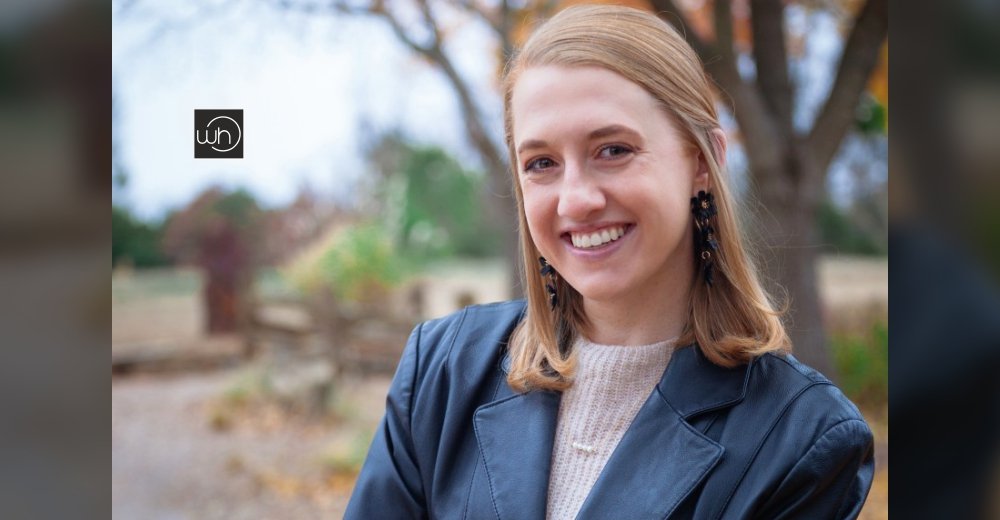People are the cornerstone of healthcare—patients, families, clinicians, and those who support them. But behind the visible healthcare efforts lie multiple groups who fight daily to establish better, more compassionate healthcare systems. One of the individuals within this circle is Erica Olenski. As a passionate health professional, she desires to enhance healthcare delivery by serving patients and their caregivers as the main focus.
At Finn Partners, as Associate Vice President, Erica Olenski dedicates her efforts to comprehending the human aspects of healthcare. She devotes her attention to understanding patient emotions together with their care experiences as well as caregiver support systems. She developed this knowledge firsthand by supporting her son through his fight against brain cancer, which revealed the vital importance of emotional healthcare practices. The healthcare transformation requires fixing systems but also introducing more compassion and personalization to healthcare practice.
Her journey serves as an uplifting example as she chooses to dedicate her efforts toward enhancing patient life quality rather than solving healthcare system needs. She believes healthcare changes when healthcare providers dedicate themselves to listening to patients and caregivers so they can become the main point of focus. Through her work, Erica Olenski shows us that healthcare’s fundamental value lies in caring for those it aims to serve.
Let’s find out how one woman’s experience revolutionizes the way we think about patient care!
How Erica’s Personal Journey Shaped Her Career in Healthcare
Erica’s story in healthcare began during her college years. She worked in a radiology department while studying public relations, an experience that exposed her to the profound emotional journey of patients and families. This early exposure to the patient experience was eye-opening, and it laid the foundation for her career. “That job exposed me to the full patient experience and showed me how meaningful it is to serve people during vulnerable moments. I fell in love with healthcare and decided to dedicate my communications career to it.”
Her journey took a deeply personal turn in 2019 when her son, August, was diagnosed with brain cancer. While she had already spent a decade working in healthcare, this experience added a new layer of purpose to her professional life. “When my son August was diagnosed with brain cancer in 2019, my work took on deeper meaning. I had already spent a decade in the industry, but caregiving helped me understand just how much the patient and caregiver experience impacts outcomes. That moment reshaped my purpose and gave me a new lens for innovation and advocacy.”
This personal encounter with the healthcare system gave Erica Olenski a deeper understanding of the struggles patients and their families endure, particularly when navigating complex systems during times of crisis. It gave her a fresh perspective on healthcare innovation—one that placed empathy and human experience at the forefront of her advocacy.
A Perfect Fit for Her Vision
Erica’s decision to join Finn Partners was driven by the company’s alignment with both her professional expertise and personal mission. She was seeking an environment where she could integrate her career in healthcare communications with her lived experience as a caregiver. Finn Partners offered just that space. “At this stage in my career, I was looking for a place where I could fully integrate my background in healthcare communications with my lived experience as a caregiver. Finn offered that space and welcomed both parts of my identity.”
Starting as a contracted resource, her role evolved as she transitioned into a full-time position, eventually becoming the Associate Vice President of Healthcare. In this role, Erica’s focus lies in supporting companies that are transforming healthcare through new technologies and service models. “I focus on healthcare innovation, supporting companies that are transforming care through new technologies and service models,” she says. Over time, her role expanded to include leading complex client projects, collaborating with multidisciplinary teams, and contributing to impactful storytelling that influences how the healthcare industry evolves.
Her journey at Finn Partners has allowed her to combine her professional experience with her personal commitment to advocating for change. The opportunity to influence the future of healthcare on a larger scale through her role has been a rewarding and natural progression for her.
Transforming Healthcare Through Communication and Advocacy
Finn Partners has a unique position in the healthcare landscape. The firm is dedicated to helping organizations within the healthcare sector communicate their missions effectively. But communication in healthcare, as she points out, is about much more than marketing—it’s about fostering trust, driving change, and ensuring that innovations improve the patient experience. “In healthcare, communication is more than a marketing function. It plays a crucial role in building trust, driving adoption, influencing policy, and ensuring that innovations actually improve the patient experience.”
At Finn Partners, Erica Olenski and her team work to craft stories that resonate deeply with their audience—whether it’s a startup launching its first product or an established organization leading transformation. “Our work helps connect mission-driven messages with the audiences who need to hear them most,” she says. Through strategic communication, they help ensure that new healthcare innovations aren’t just heard, but are understood and embraced by the people who will benefit most.
The firm’s approach is centered on understanding the responsibility that comes with healthcare communication. By approaching their work with empathy and strategic insight, they aim to reshape how healthcare organizations and the general public perceive care and innovation.
Navigating Healthcare’s Challenges with Empathy
Her understanding of the complexities within the healthcare system informs her approach to navigating some of the sector’s toughest challenges. One of the major hurdles she sees is the transactional mindset that still pervades much of the healthcare industry. “One of the biggest challenges is the transactional mindset. Healthcare still prioritizes process and efficiency at the expense of the human experience. We need to shift toward systems that include patients and caregivers in decision-making.”
This transactional approach, focused more on procedures and efficiency than human connection, often overlooks the emotional and personal needs of patients and their families. Erica’s advocacy seeks to shift that mindset, ensuring that the voices of patients and caregivers are heard at every stage of healthcare delivery—from product development to strategic planning. “I focus on advocating for their voices in every phase—from product development to strategic planning—because they hold the insights that can improve care,” she emphasizes.
The Role of Artificial Intelligence in Healthcare’s Future
Among the trends that excite Erica Olenski most is the transformative potential of artificial intelligence (AI). AI has the capacity to revolutionize healthcare, not just by automating tasks but by creating space for the more human aspects of care. “Artificial intelligence is one of the most transformative trends I have seen in my career. Even in its early stages, AI is expanding how we think, work, and care for one another.”
AI can reduce the administrative burdens that take up much of a healthcare professional’s time, allowing them to focus more on personalized care and decision-making. But she believes that AI’s true potential lies in its ability to free up time for connection, creativity, and presence—key elements often sidelined in productivity-driven healthcare models. “I believe it can help shift our focus from purely productivity-driven models toward systems that foster deeper connection, creativity, and presence in healthcare,” she says.
By integrating AI thoughtfully into healthcare systems, she sees an opportunity to not only increase efficiency but to also reintroduce the human touch that is often missing from today’s care models.
The Importance of Values
As a leader in healthcare, Erica Olenski holds herself to high ethical standards. Her leadership philosophy is rooted in integrity and doing what is right—even when the choices are difficult. “Leadership starts with doing the right thing, even when it is hard. That is especially true in healthcare, where decisions are complex and deeply personal.”
She also places immense value on leading with empathy, ensuring that the human aspect remains at the forefront of her decisions. “I also lead with my values. I keep the human experience at the center of my decisions and always lead by example. I will never ask someone to do something I would not do myself.” Her leadership is grounded in a deep sense of responsibility, not just to her team but also to the people whose lives her work touches.
Finding the Balance
In her day-to-day work, Erica Olenski balances the demands of innovation, strategy, and compassion. For her, the key is empathy—both for herself and others. “I start with empathy—both for myself and for others. When I take time to listen and understand someone’s experience, I am able to identify needs and opportunities that might otherwise go unnoticed.”
She believes that innovation begins with openness and curiosity, and that compassion ensures that the solutions created are meaningful and human-centered. Strategy, for Erica Olenski, is what connects the abstract “what ifs” to the practical “hows” of implementation. “Strategy is what connects the ‘what if’ to the ‘how.’ It allows us to take abstract ideas and create systems, messages, or solutions that are both effective and meaningful.”
A Personal Initiative: August’s Artists
Among the many initiatives Erica Olenski is proud of, one stands out as a deeply personal project: August’s Artists, a nonprofit she founded in honor of her son’s journey. The nonprofit uses art as a tool for healing, bringing creative expression to hospitals and communities. “I am proud of August’s Artists, a nonprofit I founded inspired by my son’s journey. We use art as a healing tool in hospitals and communities.”
Through events such as mural paintings and donations of window crayons, August’s Artists reminds people that healing is not just clinical; it’s emotional, creative, and deeply personal. “Every time someone picks up a crayon and creates something, it reinforces the importance of presence, expression, and human connection in the care experience,” she reflects. This initiative, born from personal loss and love, is a testament to the power of human connection in the healing process.
The Power of Personal Experience in Advocacy
Erica’s advocacy is deeply rooted in her personal experiences—both as a caregiver for her son and through her own health challenges. Her son’s brain cancer diagnosis taught her invaluable lessons in resilience, while her own journey with alopecia and topical steroid withdrawal added another layer of understanding about the emotional toll that navigating healthcare systems can take. “Caring for my son through brain cancer has shaped everything about how I approach this work. That experience revealed the emotional toll of navigating a complex system.”
These experiences drive her passion for creating more compassionate and responsive healthcare systems. They are the foundation for her commitment to advocating for a system that truly serves the needs of patients and caregivers.
Staying Motivated in a Dynamic Industry
With the demands of both her career and personal life, Erica’s resilience is a testament to her endurance. As an Ironman triathlete, she’s learned how to push through difficult moments, a mindset she brings to her work. “I have developed strong endurance through both life and sport. As an Ironman triathlete, I have learned to keep going through difficult moments. That mindset helps me stay resilient in my work.”
When things get tough, she also turns to art and music for inspiration, finding clarity and perspective in creative expression. “I also turn to art and music for inspiration. They reflect what it means to be human and remind me why this work matters.”
Advice for Those Entering Healthcare Innovation
For professionals looking to make a difference in healthcare innovation, Erica Olenski offers this advice: “Start by listening—deeply and intentionally. Listen to patients, caregivers, clinicians, your team, and yourself. Innovation doesn’t come from having all the answers; it comes from asking the right questions and creating space for others to be heard.”
She emphasizes the importance of empathy and creativity in healthcare innovation. “The most meaningful impact in healthcare comes from those who bring both creativity and empathy to their work. You need to be able to imagine new possibilities and care enough to make sure those possibilities actually meet real human needs.”
Integrating Empathy into Healthcare Solutions
Erica Olenski believes that true empathy in healthcare starts with actively listening to those most affected by the systems being designed. “Empathy starts with listening to the people directly impacted by the systems we build,” she says. By involving patients, caregivers, and clinicians early in the design process, healthcare solutions become more effective and human-centered.
She sees empathy as not just a feeling but a guiding principle in the design of healthcare systems. “Empathy is not just a feeling; it is a design principle. When it guides how we build and communicate, we create systems that are not only more effective but more human.”
A Misconception About Healthcare Advocacy
One common misconception that she seeks to change is the idea that healthcare advocacy is simply about telling emotional stories to gain sympathy. While she acknowledges the power of stories, she believes they should serve a deeper purpose. “A common misconception is that advocacy is just about sharing emotional stories to generate sympathy. While stories can be powerful and deeply moving, they are not simply meant to evoke emotion—they are meant to reveal truth and inform change.”
For Erica Olenski, personal stories uncover important insights that can help identify flaws in the system and drive innovation. “These personal accounts hold real insight. They uncover system failures, communication breakdowns, and the everyday challenges people face when navigating care.
A Future Shaped by AI
Looking toward the future, Erica Olenski predicts that artificial intelligence will drive one of the most significant shifts in healthcare. “I believe artificial intelligence will drive one of the most significant shifts in healthcare over the next five years. It is already beginning to change how we gather insights, manage data, and make decisions—and we are only scratching the surface of its potential.”
AI, if used thoughtfully, could restore human presence in healthcare by reducing administrative tasks and enabling more personalized care. “If we use it intentionally, AI could help restore space for the human side of healthcare. It could free up time for connection, creativity, and presence—things that have too often been pushed aside,” she says.
Leaving a Lasting Legacy
Ultimately, Erica Olenski hopes her legacy in healthcare will be one of resilience, integrity, and creativity. She wants to be remembered for her ability to transform even the most challenging experiences into opportunities for breakthrough innovations. “I hope to leave a legacy of resilience, integrity, and creativity. I want people to remember that even the hardest experiences can lead to powerful breakthroughs, and that our stories—when shared with honesty and purpose—can drive meaningful change.”
Her work will leave an indelible mark on the healthcare system, ensuring that the voices of patients and caregivers are integrated into the way care is designed, communicated, and delivered. “If my work helps elevate the voices of caregivers and patients in how healthcare systems are designed, communicated, and led, then I have done something important.”





